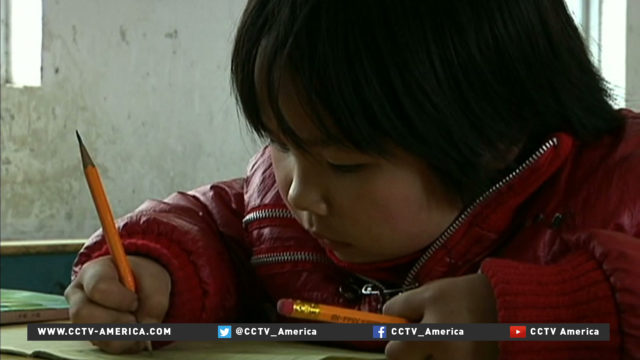Chinese political advisers are also focusing on education reform – calling for more attention for the countryside. Some rural areas are still in urgent need of teachers.
CCTV’s Wu Guoxiu reports from the CPPCC in Beijing.

The fewer teachers, the fewer students, or vice versa. That’s still a chicken-or-egg dilemma in China’s rural schools.
Favorable government policies haven’t solved the shortage of both teachers and students in some rural schools, CPPCC member Zhang Yihe said.
“I’ve visited a school. Nine students are divided into five levels. There are only two teachers. One is 58 years old, the other is 60. They can only teach some Chinese, math, moral lessons or a little bit of English. This school is in a mountainous area of Central China. I think situation could be even worse in the west (areas of China),” Zhang said.
Pang Xiaoli is the CPPCC member from Qinghai province. She said in recent years that rural teaching conditions have been improved, and teachers are getting more chances for training. Aside from building schools and equipping them, she said the key to getting rural teachers to stay is to raise their salaries.
China should train a batch of freely flowing education workers in order to solve teaching staff shortage for left-behind children in rural areas, said Liu Changming, member of the Chinese People’s Political Consultative Conference National Committee and the headmaster of Beijing No. 4 Middle School, an elite school.
Left-behind children are children whose parents have left home and traveled to urban areas for work and don’t live with their families.
The country should establish an education talent market with a batch of free education workers for a balanced education development, Liu said.
Rural children, including left-behind ones whose parents migrate to cities for jobs, are a “rich ore” with enormous potential for human resources development, said Liu,
The government can solve the shortage of rural teachers by purchasing education services from the market, he added.
China has about 60 million left-behind children in rural areas. Despite improvement in recent years, the rural-urban gap remains wide in education.
 CGTN America
CGTN America

